LGBT+ History Month: Top photographs from The Independent archive
Buy an Independent archive print this LGBT+ History Month
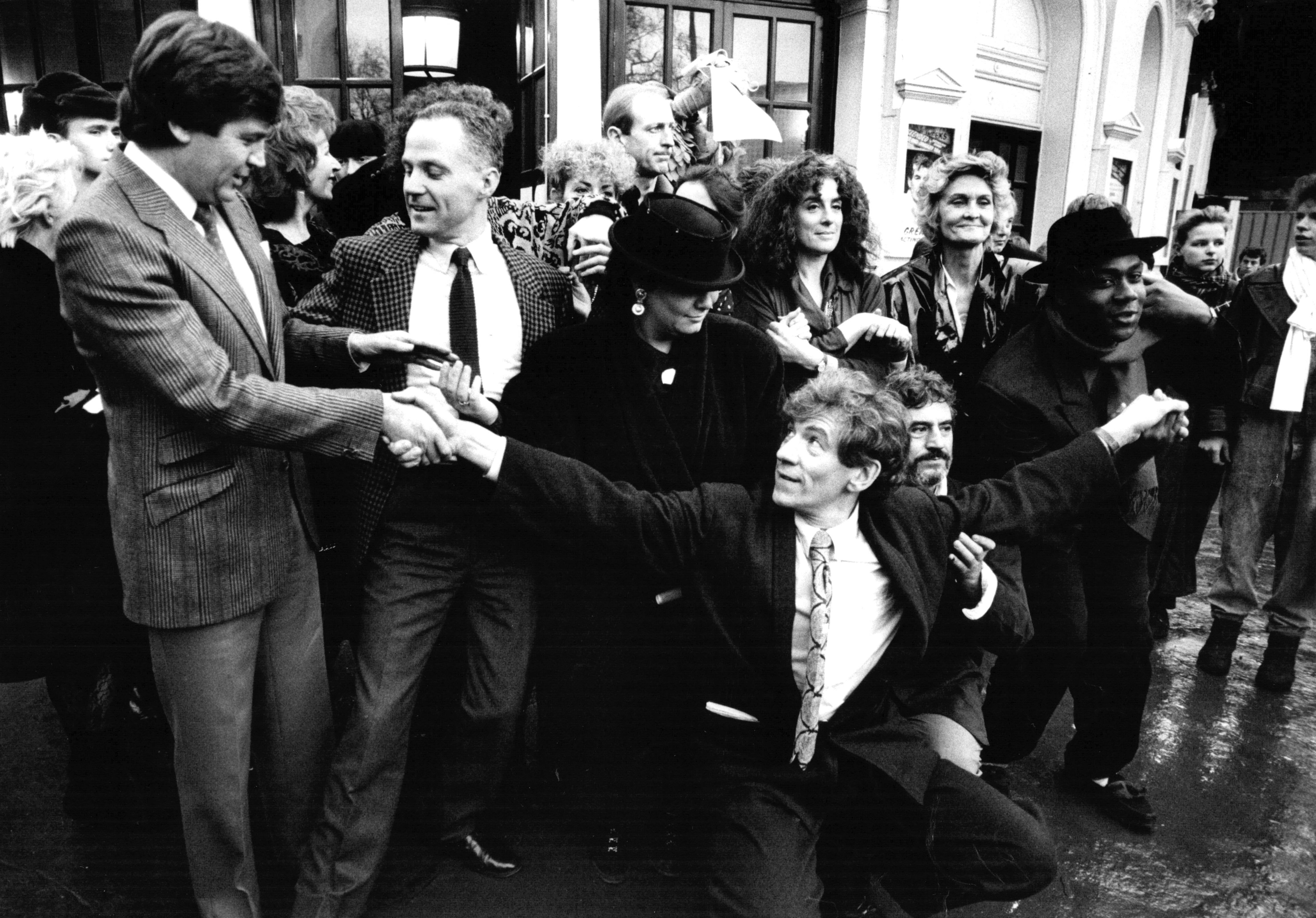
Your support helps us to tell the story
This election is still a dead heat, according to most polls. In a fight with such wafer-thin margins, we need reporters on the ground talking to the people Trump and Harris are courting. Your support allows us to keep sending journalists to the story.
The Independent is trusted by 27 million Americans from across the entire political spectrum every month. Unlike many other quality news outlets, we choose not to lock you out of our reporting and analysis with paywalls. But quality journalism must still be paid for.
Help us keep bring these critical stories to light. Your support makes all the difference.
In honour of LGBT+ History Month, we are sharing rarely seen photographs that spotlight British queer history.
In line with this year’s theme #BehindTheLens, these striking images from The Independent’s photography archive offer a close-up of the inspiring and influential people behind the scenes. This latest collection underscores the vast and rich history of the LGBT+ community in the UK, chronicling the ongoing fight for acceptance and visibility.
Some of the photographs depict key moments in LGBT+ activism, such as the fight against Clause 28, the campaign to lower the age of consent, and the gay pride demonstrations of the 1990s. You will also find engaging portrait photography of prominent figures in the LGBT+ community, including British politicians and performers.
For any enquiries regarding the images featured here please contact esilibrary@esimedia.co.uk
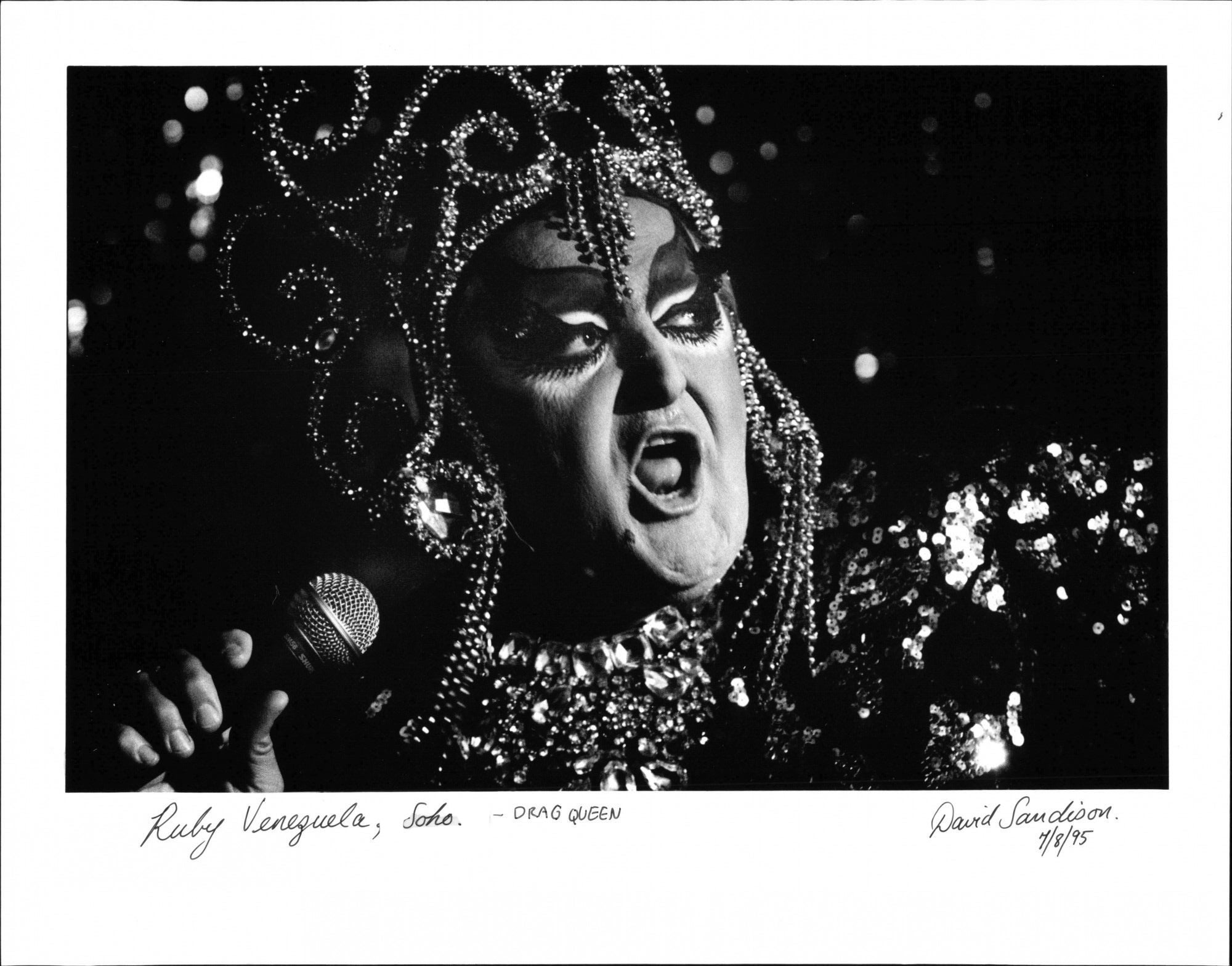
Drag artist Ruby Venezuela started out their drag career in their hometown of Plymouth. Ruby later relocated to London and found success in cabaret and on the drag circuit, best known for hosting shows at Madame Jojo’s and Club Fantastic in Soho during the 1980s and 1990s. Ruby supported AIDSMemoryUK and worked to raise funds for Aids hospices and homelessness.
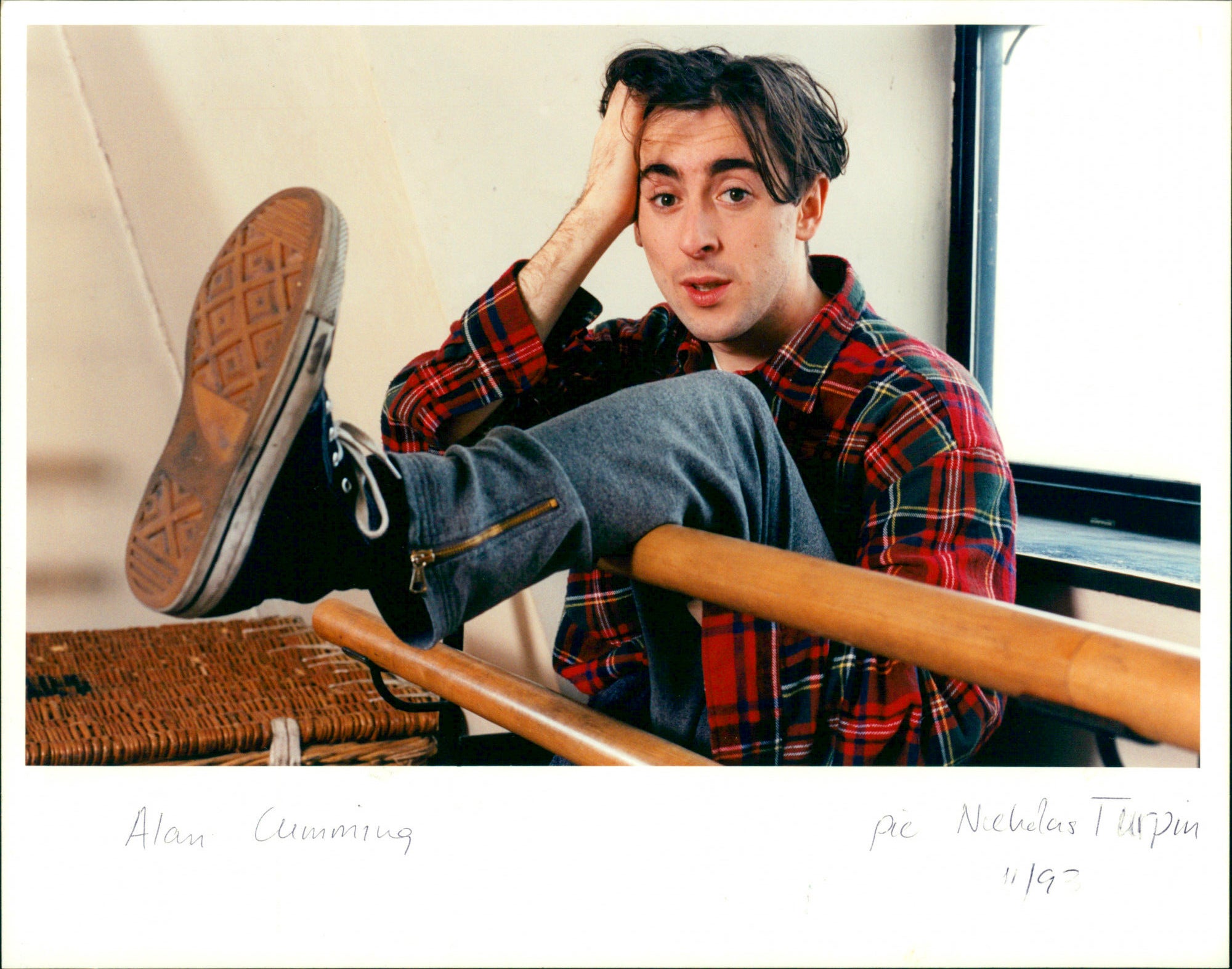
This shoot was taken a month prior to the release of the filmed stage performance of Cabaret in 1993. Bi icon Alan Cumming is a long-serving campaigner for LGBT+ rights and has been particularly outspoken on trans issues, winning a GLAAD award for outstanding contributions toward eliminating homophobia. He also co-owns a queer cabaret bar in New York called Club Cumming.
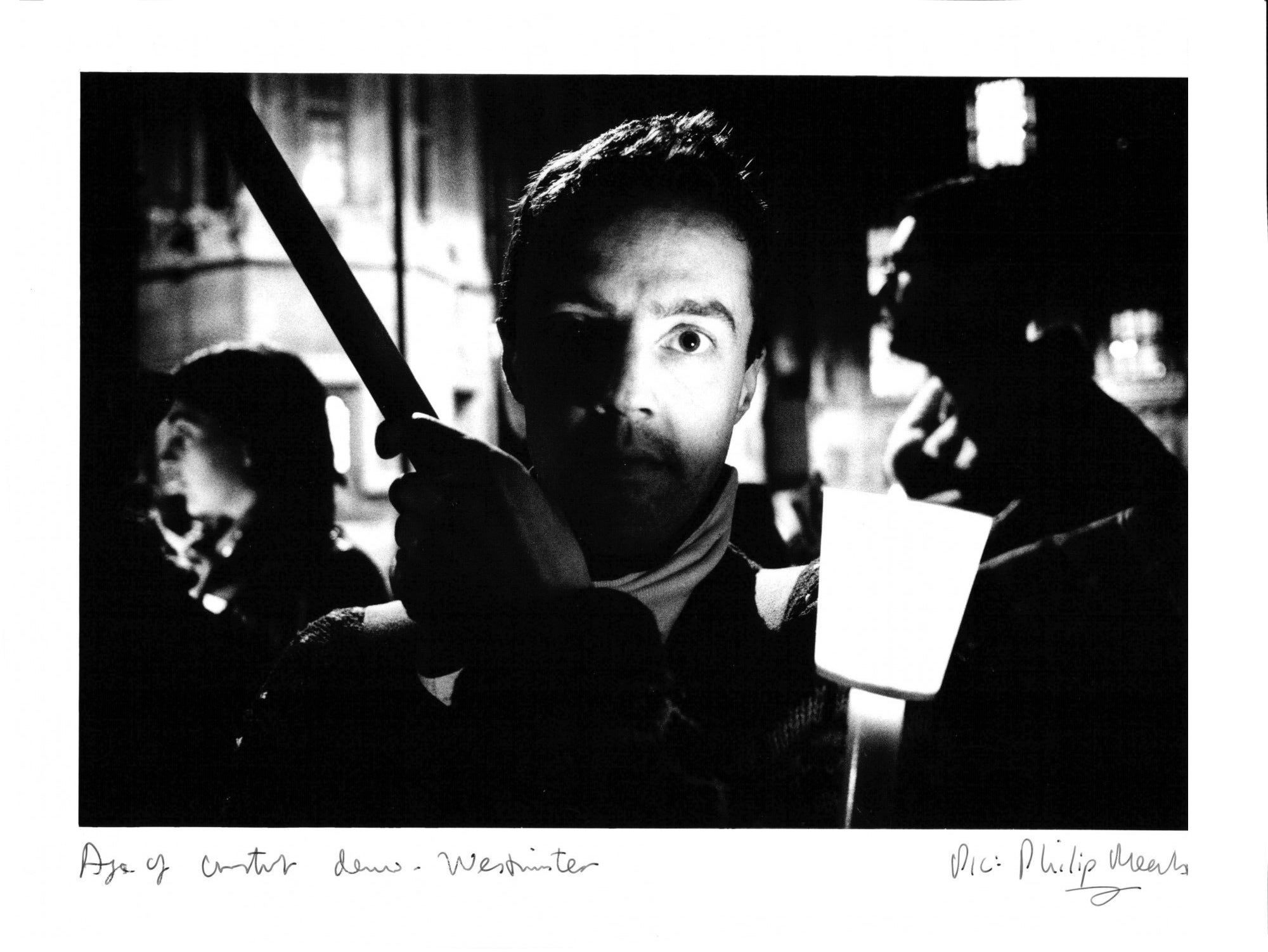
This protest in Westminster was organised by direct action group OutRage! as part of wider campaign efforts to lower the age of consent from 21 to 16. While the 1967 Sexual Offences Act decriminalised homosexual acts, the law set the age of consent to 21, even though it was 16 for straight couples. Thanks to the persistent activism of the LGBT+ community, the age was first lowered to 18 in 1994 (the same year this image was taken) and finally to 16 in 2000.
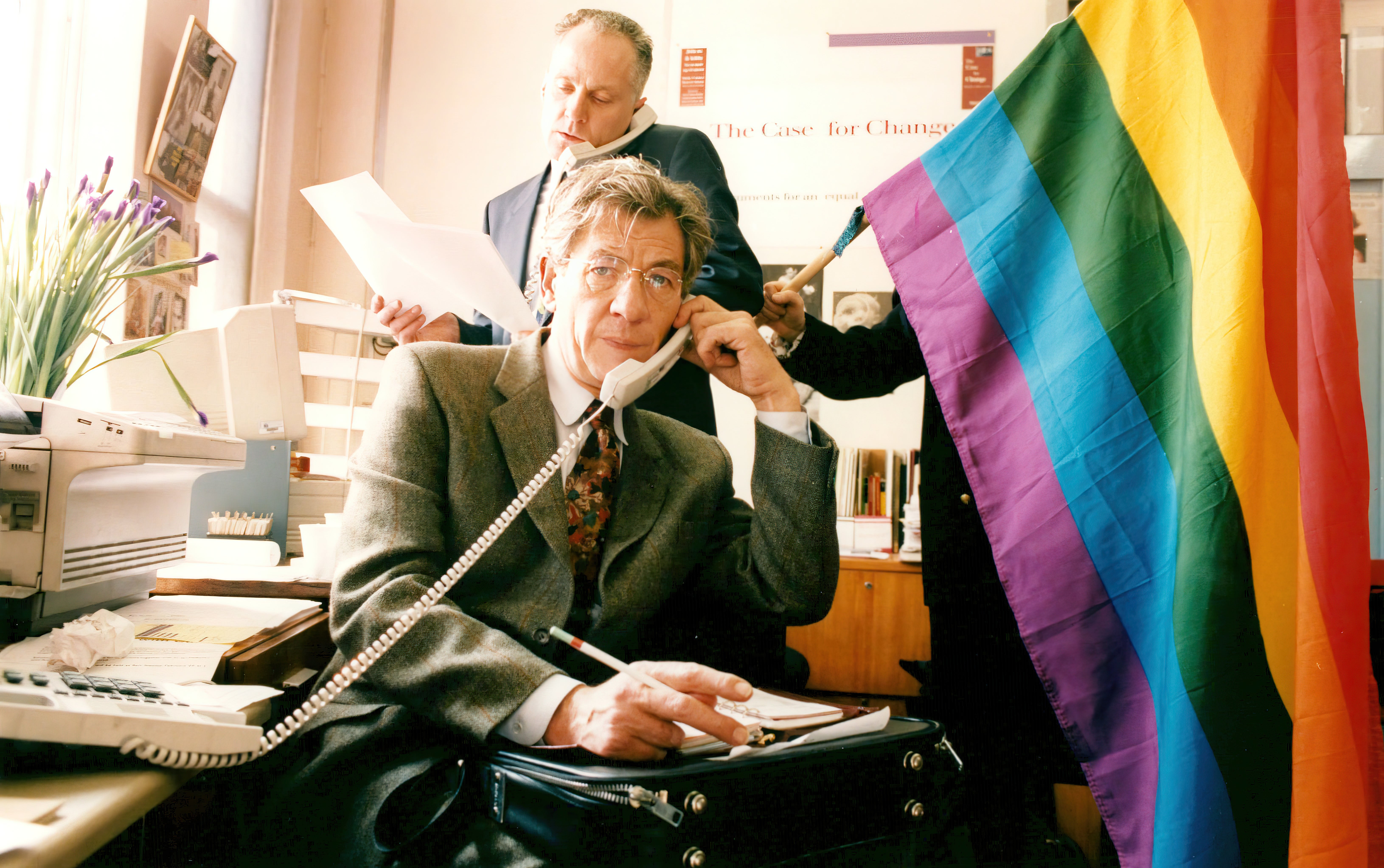
In the year Sir Ian McKellen came out, in 1988, he co-founded Stonewall UK, which lobbies for legal and social equality on behalf of the LGBT+ community. McKellen is also patron to several other LGBT+ groups.
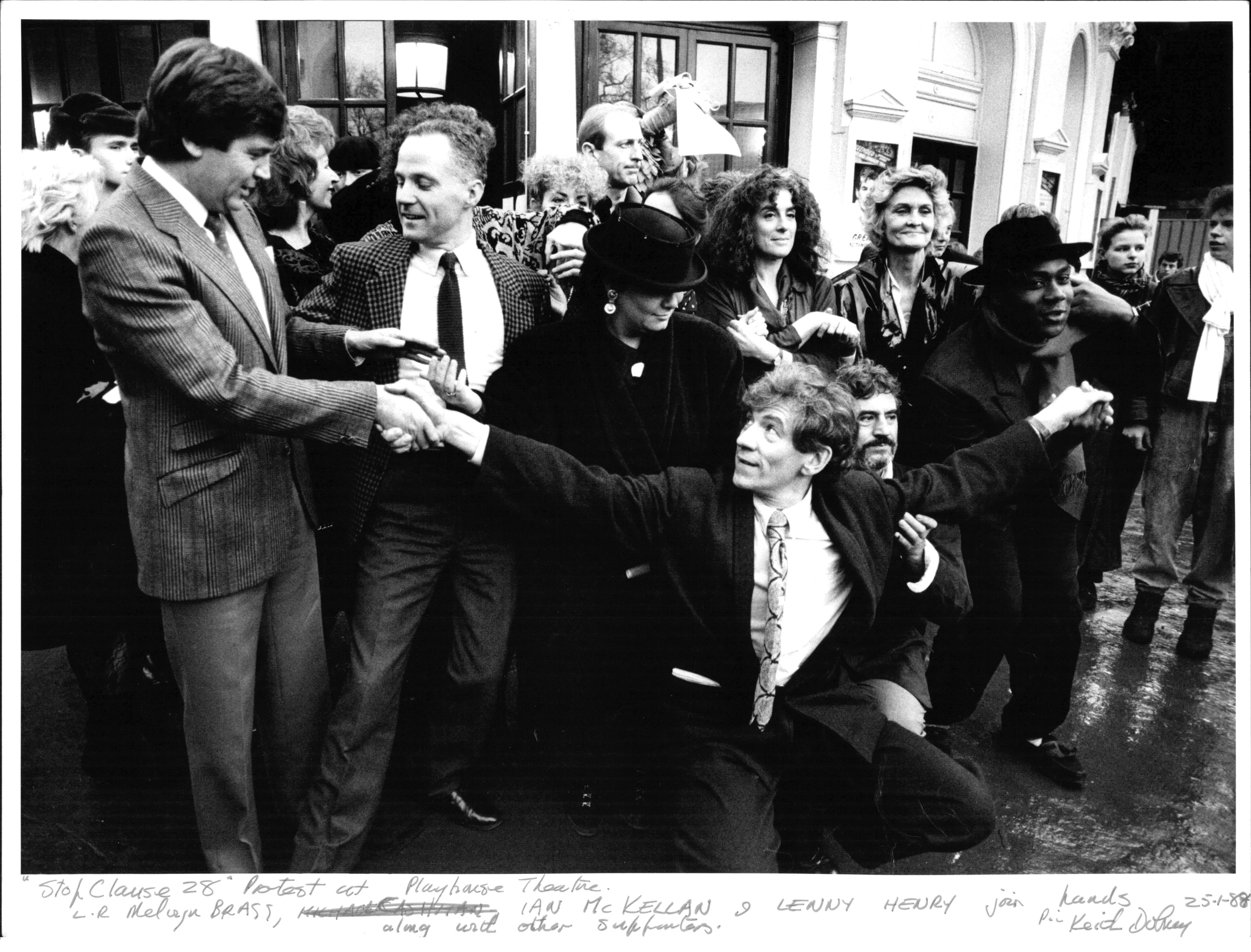
Stop Clause 28 was a campaign against a section of the Local Government Act (1988) that banned the “promotion of homosexuality” in the UK. The legislation prevented local authorities from supporting LGBT+ constituents and expressly censored educational materials that featured “an alternative gay family”. Stop Clause 28 attracted the support of many prominent figures, such as Ian McKellen, Melvyn Bragg, Dawn French and Lenny Henry, all seen here in this photograph.
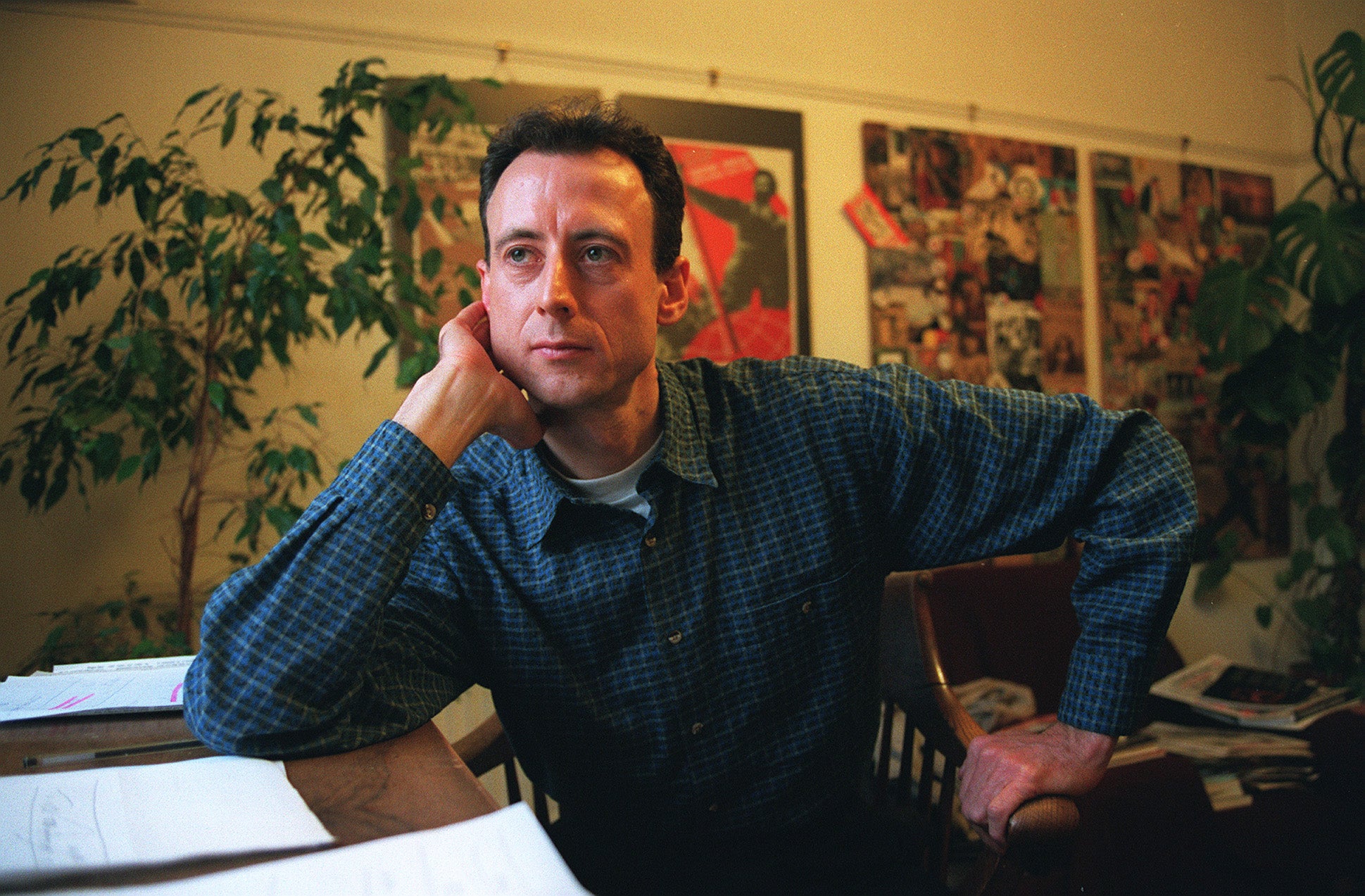
Peter Tatchell, an Australian-British human rights campaigner, is best known for his tireless activism and advocacy for LGBT+ rights. Tatchell helped found the Aids activist group ACT UP London in 1989 and OutRage! in 1990. A noted member of the Gay Liberation Front, he went on to establish his own foundation the PTF to promote and protect human rights in the UK and internationally.
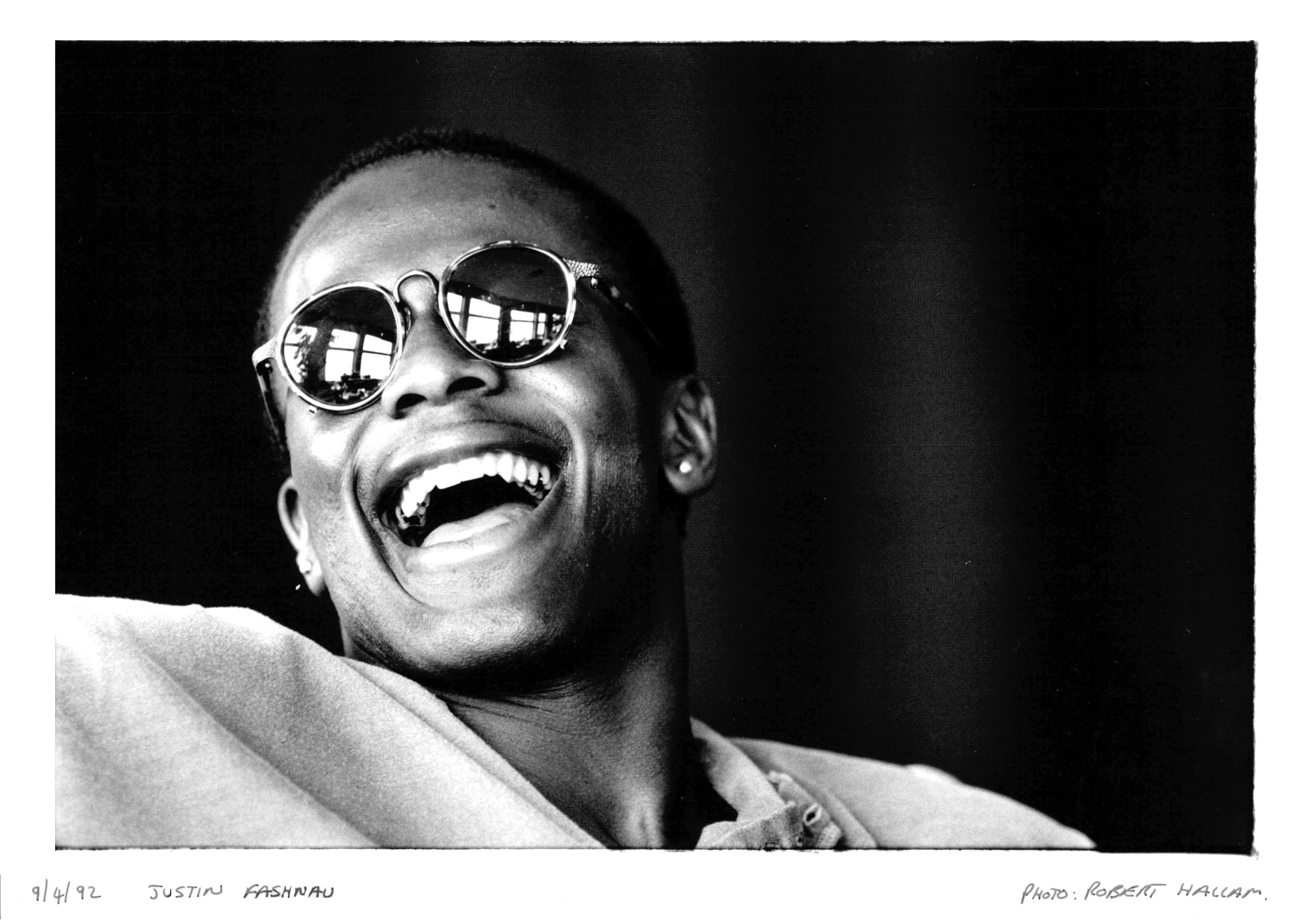
Justin Fashanu was the first professional footballer in England to come out as gay in 1990. LGBT+ campaigner Peter Tatchell and Justin’s brother, John Fashanu, are currently consulting on an upcoming ITV drama chronicling the lives of the footballing brothers.
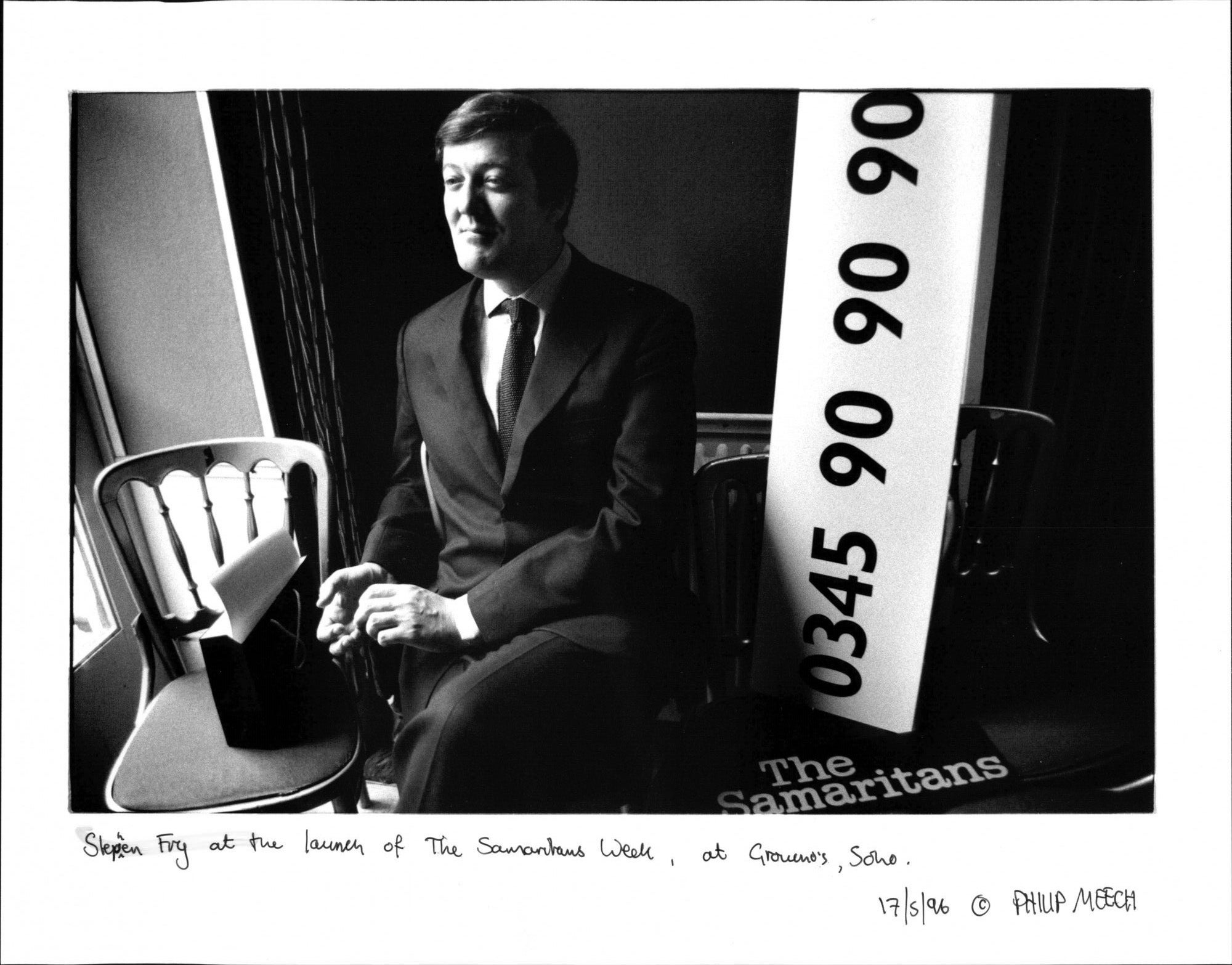
Pictured here for the launch of The Samaritans Week, Stephen Fry is a committed advocate for people experiencing mental health issues, later becoming president of the mental health charity Mind. Fry’s work has often highlighted the increased risk of suicide and mental health problems within the LGBT+ community. In recognition of these efforts, Stephen Fry was presented with the British LGBT Lifetime Achievement Award in 2019.
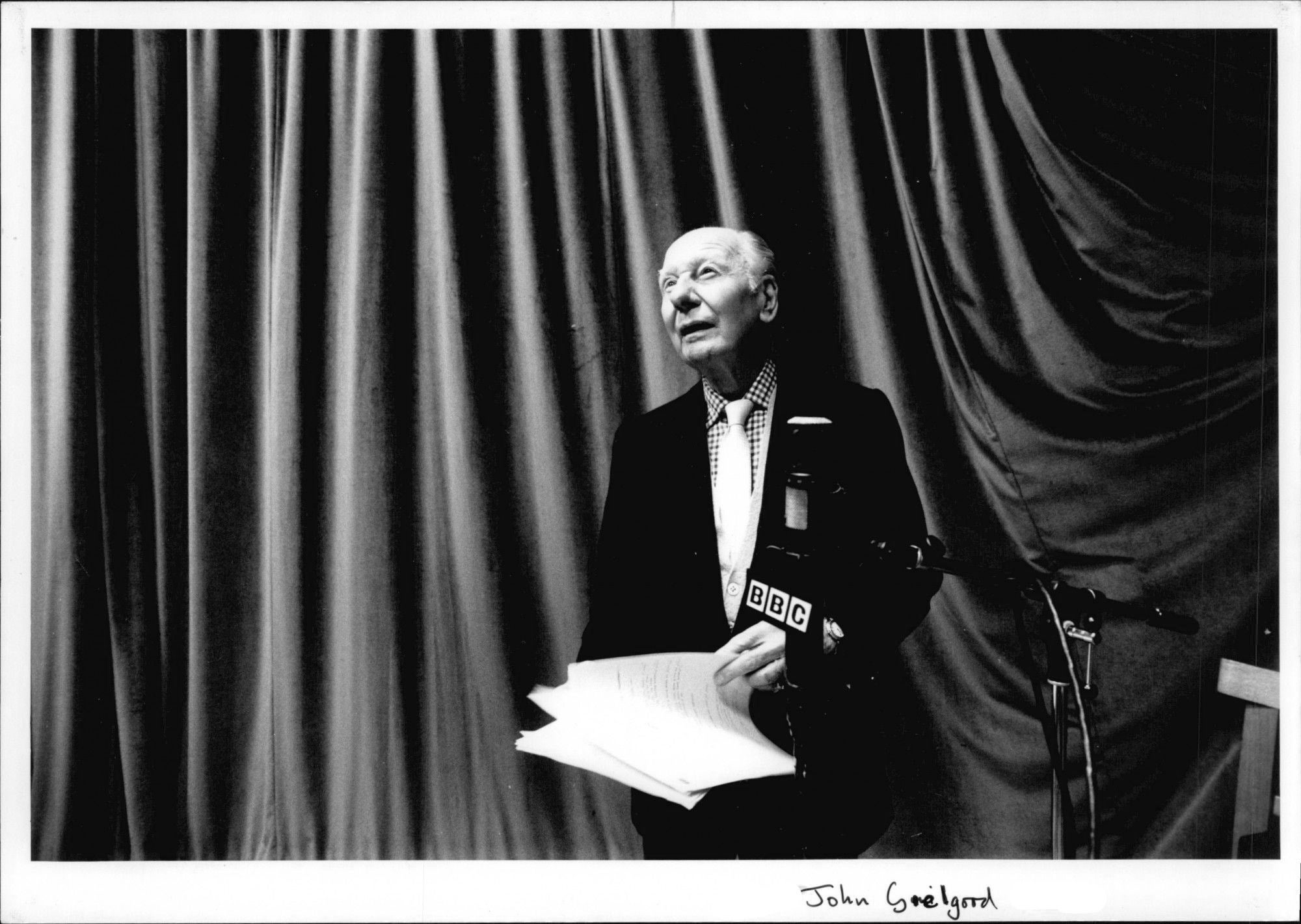
Sir John Gielgud was a renowned English actor and director whose stage career spanned eight decades. For most of Gielgud’s life, being gay was illegal in Britain, and in a traumatic episode in 1953, Gielgud was arrested for his sexuality. In 1988, more than 20 years after homosexuality was decriminalised in Britain, Gielgud publicly revealed his relationship with long-term partner Martin Hensler.
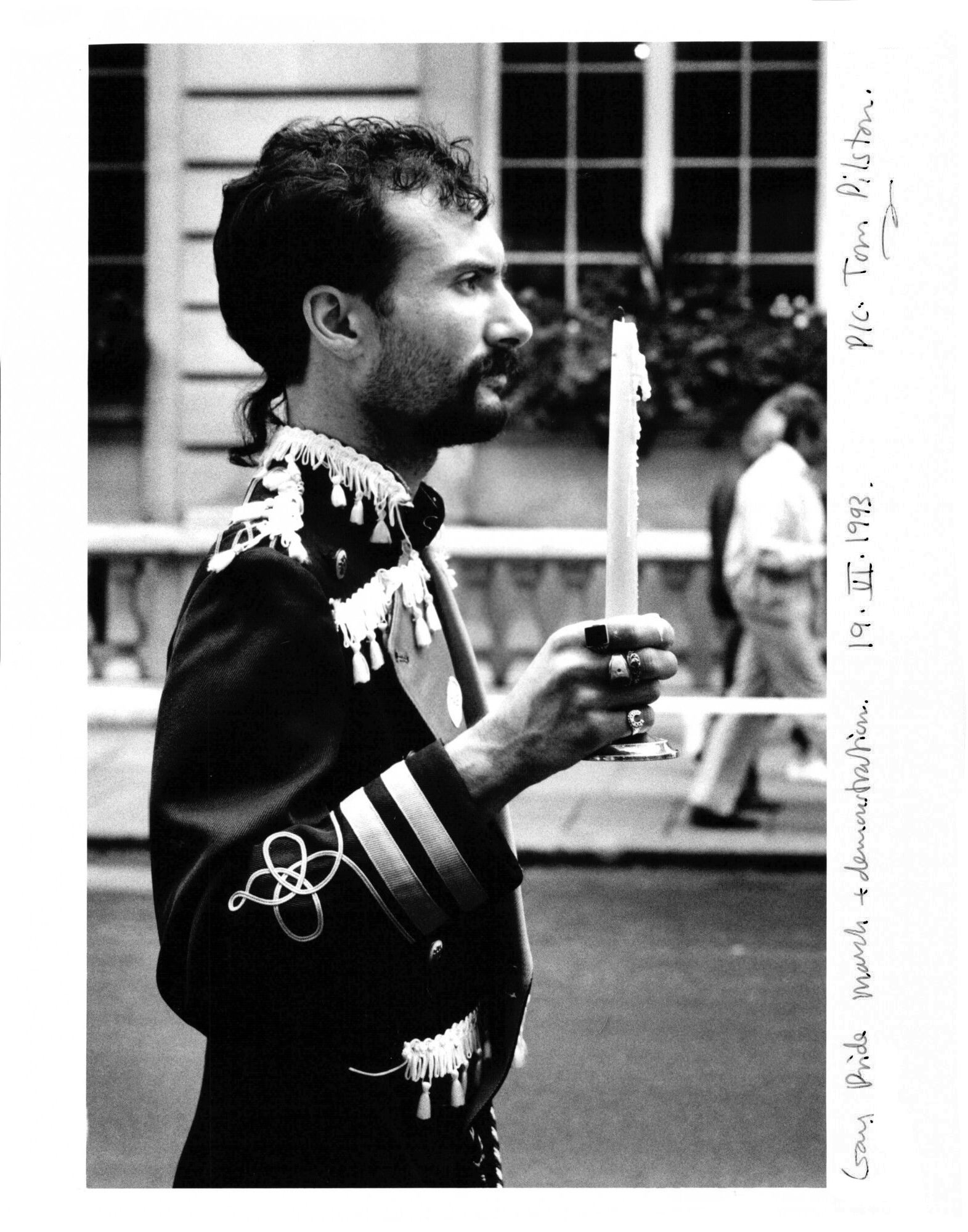
In 1993, LGBT+ activists were continuing their fight against Section 28, as well as campaigning to lower the age of consent to 16, the same age for opposite-sex couples. A year later the House of Commons voted to reduce the gay male age of consent to 18. However, many were disappointed that it had not been lowered to 16.
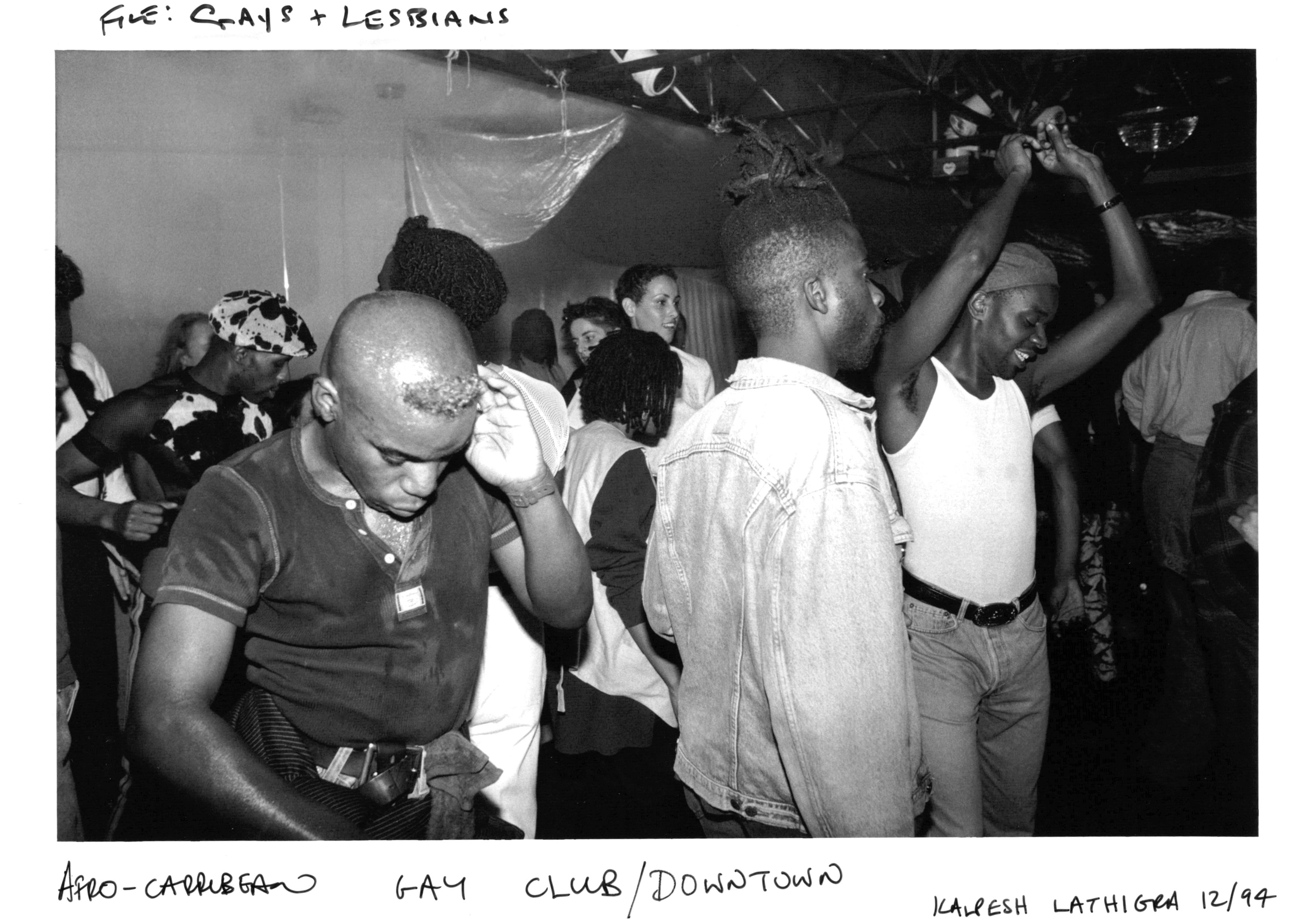
This image of a gay club in London was commissioned as part of a series exploring the “Pink Pound” in and around Soho, a phrase coined in 1984 to describe the purchasing power of the gay community. This particular set sought to represent the Black LGBT+ community of London.
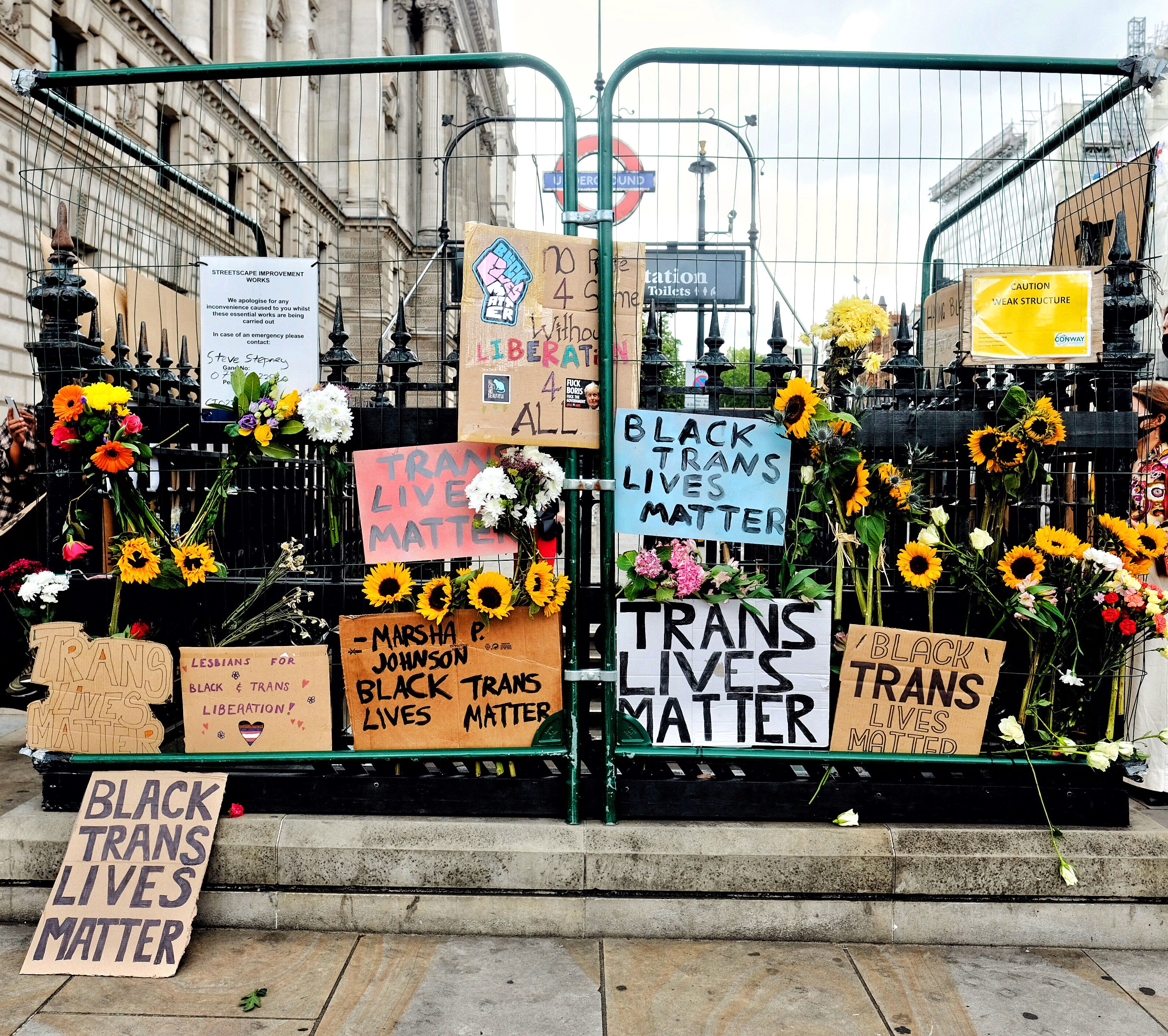
Thousands joined this march in 2020 to celebrate the Black trans community and to protest against proposed changes to the Gender Recognition Act.







Join our commenting forum
Join thought-provoking conversations, follow other Independent readers and see their replies
Comments